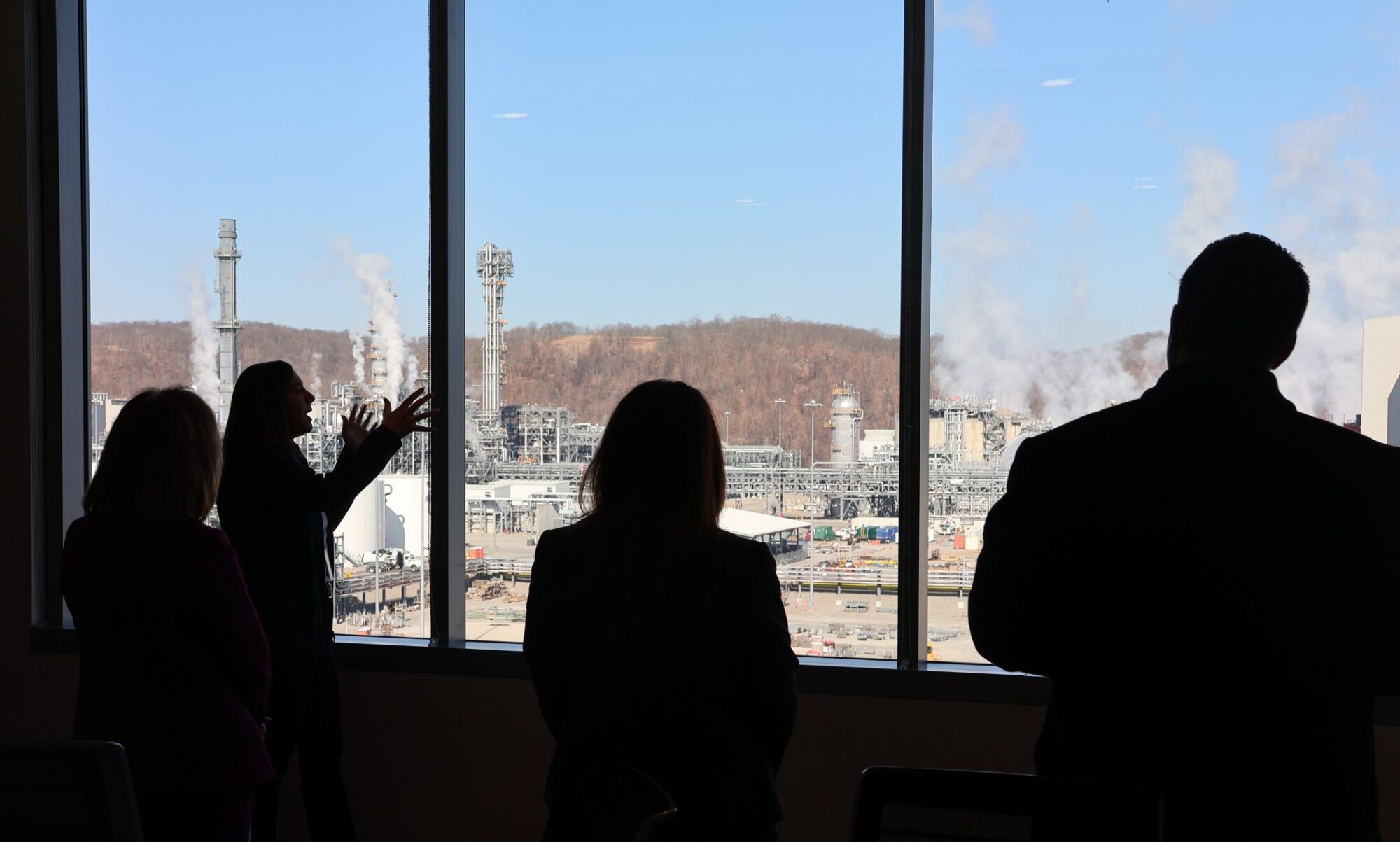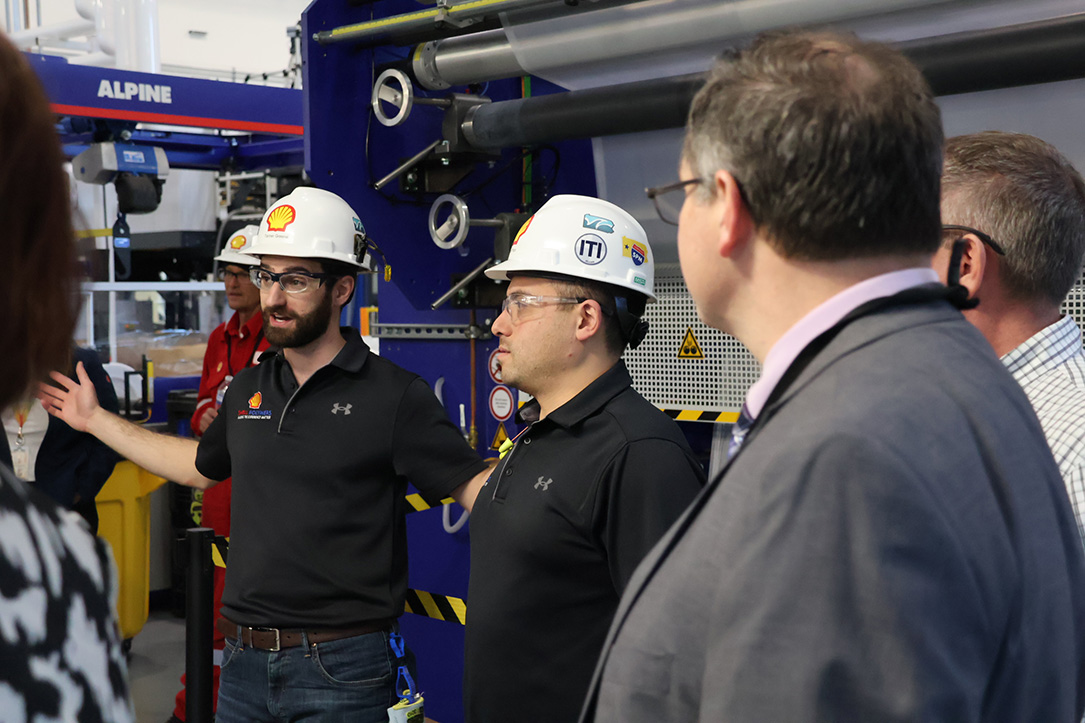Beneath a cloudless sky, puffs of steam rose from machinery at Shell Polymers Monaca. The sunlit Ohio River glittered in the distance. All of it was visible through the eyes of Beaver County school superintendents and administrators gathered inside the Shell Polymers Monaca Innovation Center. Superintendents weren’t just admiring the massive facility, however. They were looking into a vision of their students’ future.
“What’s a career opportunity that may not exist here?” asked BVIU Executive Director Eric Rosendale, who helped organize the visit.
“There really isn’t one,” said Samatha Baldwin, Community Business Advisor at Shell. She rattled off a list of career opportunities inside the facility including mechanical, electrical, and chemical engineering; plumbing; information technology services; communication services; medical services (the Shell facility has its own emergency response team), and railroad maintenance (there are 27 miles of track on-site).
“I was impressed with all the various types of employment they have and the various pathways one could take to get hired there,” said Emily Sanders, Assistant Superintendent of Beaver Area School District. “I feel like the equipment and innovation center was cutting edge and very professionally run.”
Eleven years ago, none of those careers existed in this location. In fact, it was nothing more than a zinc smelting site. However, once the Shell Polymer Monaca project was set in motion, the site was remediated, and the facility was built. While construction completed and operations started in Fall 2022, the facility started its final Polyethylene Unit in February of 2024 and is working towards steady state operations, said Baldwin, a 2004 Center High School graduate.
Shell Polymers Monaca employs approximately 500 full-time Shell employees, and there are more contractors who work on-site. The plant receives regionally sourced ethane from the Falcon Pipeline, “cracks” it into ethylene, which is then turned into plastics of both low and high density. The end result – tiny polyethylene pellets – are shipped via truck and rail to create plastic materials ranging from medical supplies to shampoo bottles, to gas and water piping, to food packaging.
“It is really incredible to see up-close the work that is being done here,” said Rosendale. “I hope by showing our superintendents the possibilities of this facility, it can help them build bonds with Shell and create career paths for our kids.”
Finding a career path is exactly what administrators like Sanders are focused on.
“We are implementing career concentration pathways for students, and are starting to implement career mentoring, industry-based credentials, and paid internships,” said Sanders “We also have students attend career days on campus and off campus.”
“I would love to bring Shell representatives to our school to talk to our seniors,” she added.
Following the question-and-answer session, administrators were treated to a tour of the Shell Polymers Innovation Center. Matthew Feldbauer, Shell Technical Service Engineer, showed visitors the facility’s copious lab space before escorting them to a warehouse-sized room. Inside, administrators were shown the reality of products made possible by the plant.
As Feldbauer spoke, a test run of film scrolled over the heads of the administrators. The film, he explained, would be turned into bags for shredded cheese. But why is Shell making plastic cheese bags on-site?
“It costs thousands of dollars per minute to stop a production line at an active plant,” said Feldbauer. “That’s why the testing inside our innovation center matters.”
“I did not know about all the various plastic fabrications,” said Sanders, “and how companies can come to Shell to test out ideas and products.”
Two workers – both wearing hard hats emblazoned with the red-and-yellow Shell logo – explained how they arrived in Beaver County. One of them was a Youngstown State University graduate. Both had studied engineering, whether it was chemical engineering at Youngstown State, or Plastics Science at Clemson University. Engineering classes, they said, served as the building blocks of their profession.
“Shell likes to recruit from around the world,” said Baldwin, “but it’s even better when you have home-grown talent to choose from.”
It’s that talent that Beaver County school superintendents are hoping to cultivate, keeping in mind employers like Shell who provide a basis for young careers to flourish.


